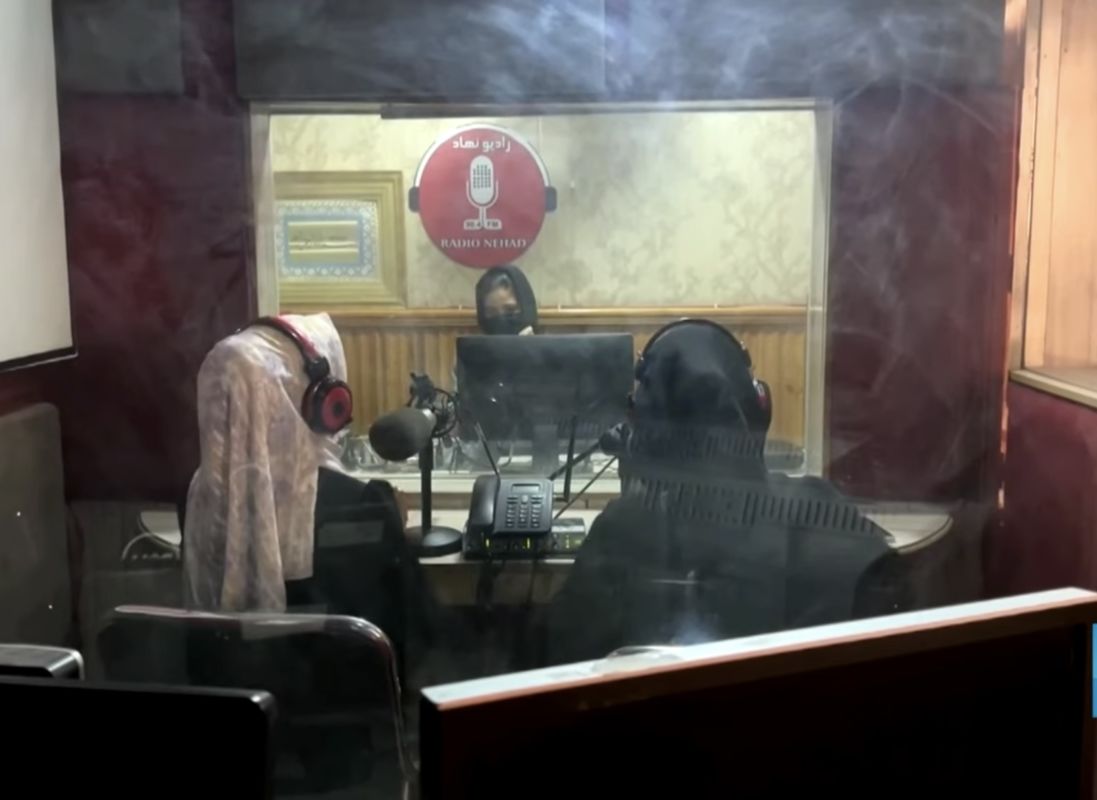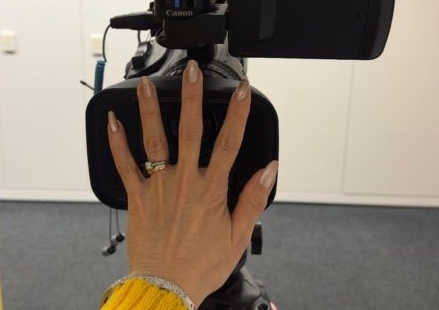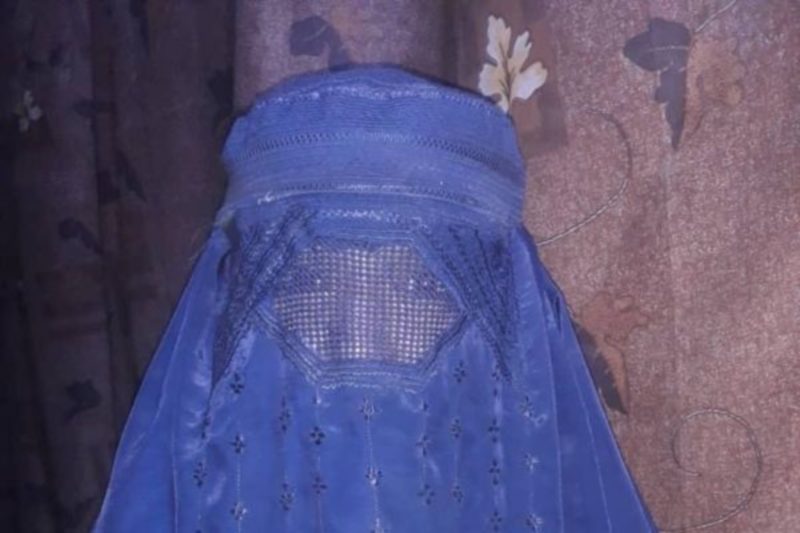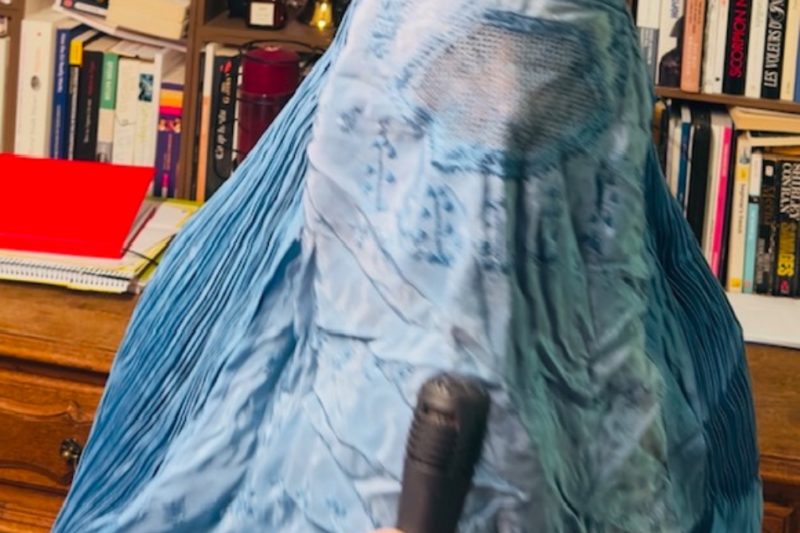Journalism in Afghanistan : “I feel like a slave under the Taliban regime !” (3/6)

“I appeal to the international community for support, so we can continue to serve as voices for those who need to be heard.”
In this third exclusive interview with journalists from Afghanistan, Lailuma Sadid speaks to journalists who are surviving every day, as well as trying to provide news for citizens, even though press freedom does not exist anymore.
They live under the control of the dictatorial Taliban regime, and to add to their problems, women are working from the behind of the shadow of the Burqa. As an urban and social reporter at one of the TV channels in Afghanistan, Mabobah Ahmadzi allonym has faced both challenges and triumphs in her journey to give voice to her community. With a journalism degree and a deep passion for storytelling, she has moved from local roles to international reporting. Balancing work and family life in Afghanistan is tough, especially as a mother of three. Despite long hours, risks, and the uncertainty of her asylum efforts, she remains dedicated to her profession. “I appeal to the international community for support, so we can continue to serve as voices for those who need to be heard.”
In a phone interview with media Latitudes, she said, “I am Mabobah Ahmadzi, a reporter for aTV. I began my professional career in the media world seven years ago, and I currently work as an urban and social reporter at one of the TVs, but with many difficulties. Since then, I have faced numerous challenges and successes, each impacting my life in different ways.”
She finished her education with a wish to be a famous journalist in Afghanistan and said: “I completed my studies in journalism at a private university, driven by my deep passion for journalism and media. I have always aspired to become a good, professional reporter, and through hard work and perseverance, I achieved this goal. Throughout my journey, from my early days in local media to international experiences, I have consistently aimed to reflect the voices of the people and the realities of my community.”
Personal Life and Family Challenges
As a mother, her family also supports her in her journey. “I am married and have three sons, of whom I am very proud. Every day, I strive to provide the best for my family both as a dedicated mother and as a professional journalist.” These two roles in her life are intertwined, and each gives her strength and motivation.
Life as a mother and reporter in a country like Afghanistan, especially at this time with numerous challenges, is never easy. Long working hours and the need for frequent travel have forced her to seek a balance between her professional and family life. However, “my love for my work and the responsibility I feel as a reporter always motivate me”.
“I felt trapped. I returned home, feeling that my life had completely changed.”
The Bitter Experience of Government Collapse
Mabobah said August 15, 2021 “is a day I will never forget. I was in the university courtyard when I heard the news of the fall of the Islamic Republic. It was 10 a.m. on a Sunday, and I was planning a report.” Suddenly, the atmosphere at the university changed, and everyone was in shock and confusion in Kabul and no one knew what was going on!
When the academic deputy informed us that the university was closed, “I couldn’t believe it, I asked my colleague: is that true what I heard? But unfortunately, it was true, and I still felt like I was dreaming.”
Suddenly, we received messages and phone calls from the office and colleagues. Also, the production manager of one of the media outlets called me directly and said, “‘Mabobah, the government has fallen, the Taliban are coming and they’ll be everywhere; go home as soon as possible’.” With emotion in her voice, she added: “At that moment, tears filled my eyes and I was still shocked. I wanted to go to the office, but fear and concern prevented me, and I went home.
The other thing that looked very strange to me that day was that people were fleeing hopelessly, and no one knew where to go and what would happen. The situation was extremely critical and desperate. Chaos was everywhere, and “I felt trapped. I returned home, feeling that my life had completely changed.”
Their voices must be heard and the truths must reach the world.
Psychological Impact and the Struggle to Continue
“It was a very long day, but when I got home my mental state was not good. It was the same for all my family, we were worried about our future and the fate of our country. I heard that everyone was trying to leave the country, but I was shocked. At that time, I heard many journalists had managed to leave, especially after the full closure of Afghanistan, but I could not. The security situation was very precarious, and it was not easy to move from one place to another or get to the airport, and I couldn’t go to the airport due to my psychological problem.”
After a few days, the situation completely changed, the atmosphere wasn’t the same as before, and we were worried about everything. At the beginning of the Taliban regime, we heard the university announce that we could continue our studies with a lot of conditions. However, “I had lost my enthusiasm for learning, even though only one semester of my higher education was left. My classmates were attending for their degrees, and the university atmosphere had completely changed. I decided to continue my education, but deep down, I felt I hadn’t returned to my former self.”
But life in Afghanistan under the control of this regime especially for active women like me looked like a prison and we were the prisoners. Even with all the difficulties we finished and graduated from university. So “I applied for positions at other media outlets. Despite many challenges, I strive to continue to work as a reporter. But the working conditions are extremely difficult.” Mabobah faces new problems every day, but she believes that their voices must be heard and the truths must reach the world.
Unfortunately, she said: “With the new law of the Taliban, we are not welcome, i feel like a slave, so now they are saying women are not allowed to hear the voices of other women in public. The TVs are not allowed in some provinces to publish videos of humans, this is really too much.”
Searching for Hope and a Bright Future
We are disappointed in our country because everything is closed for women and we are the victims like always. In the 21st century, we don’t have our basic rights, so that is why we are trying to leave the country. But it is not easy to get out of Afghanistan because my efforts to get asylum in other countries have yet to yield results. “My life has become somewhat aimless and uncertain. I am just trying to survive and cope with daily struggles. This situation has severely impacted my spirit, and each day I ponder when this tough period will end.”
“Ultimately, my plea to the international community is to hear our voices, to recognize the gender apartheid as a crime against humanity, and not to recognize or make any engagement with the Taliban. But the international community can assist us in finding safe places. We need support and solidarity to redirect our lives and achieve our dreams. We still hope to return to normalcy and to serve as the voices of our people as journalists.”




